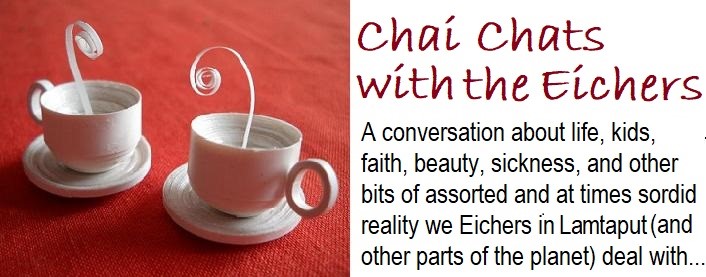And then there are people who are not 'at home' when you get there.
And then there are so many whose 'homes' beggar the imagination.
When Dr. Manoj visited us recently, we had him accompany our staff on a home visit.
They went to meet Mr. Lambu. But he was not at home.
Normally I would be upset - our staff having gone all the way - and not meeting him - but not this time.
He was not there, because Mr. Lambu had started working again - driving an auto-rickshaw.
His wife still picks garbage in the morning. His house is still just a piece of plastic over the foot-path, but he has started working. A miracle. A real miracle.
Lets rewind to some months ago:
A member of Rahul Mohite's church was passing by Mr. Lambu's place - and for some reason needed to wash his hands. Take a look at this photo - its hard to believe, but this man asked Mr. Lambu's wife for water and she helped him wash up.

picture by Dr. Manoj Jacob - Sept. 2007
While washing he saw Mr. Lambu lying down - feverish and gaunt. The church member told Mr. Lambu to come to their church in Ambewadi. Mr. and Mrs. Lambu did. They were referred to us at JSK by the pastor. We found them to be HIV positive.
In a series of minor miracles, we were able to start Mr. Lambu on TB treatment - and Mrs. Lambu on treatment for Hansens disease (a.k.a. leprosy - still around 2000 years after Jesus).
We knew Mr. Lambu was getting better. He had gained weight. Started to move around. We helped him get his auto-rickshaw driving licence again.
And then when we went to his home. He was not there.
Mr. Lambu was out driving his rickshaw. A miracle in progress.
-------------------------------------
Please keep praying for Mr. Lambu and his family. Pray that they will leave their pavement dwelling and start living in a more regular house like the used to before their slide into destitution. Pray for ongoing growth in faith and understanding of God. Pray for the challenges of raising 4 children in a chaotic situation. Pray for wisdom and tact and joy for our JSK staff as they come along side Mr. and Mrs. Lambu and others with HIV.
















 Mr. Hittite is in the hospital.
Mr. Hittite is in the hospital. Late last year our balcony was joined by 2 visitors.
Late last year our balcony was joined by 2 visitors.










 We seem as a country - as a culture - to be increasingly veering towards overt violence to settle issues.
We seem as a country - as a culture - to be increasingly veering towards overt violence to settle issues.
